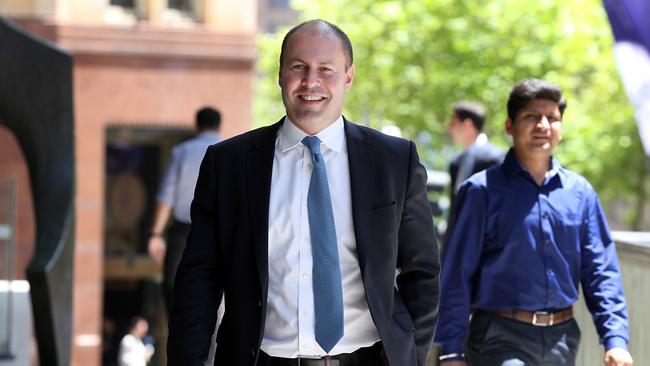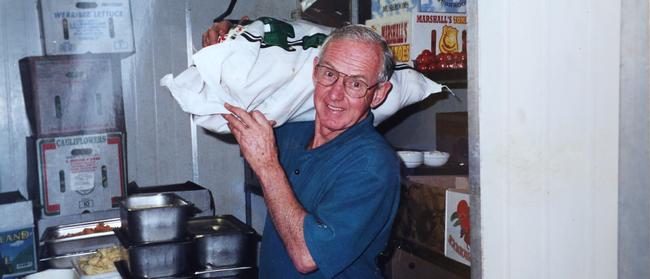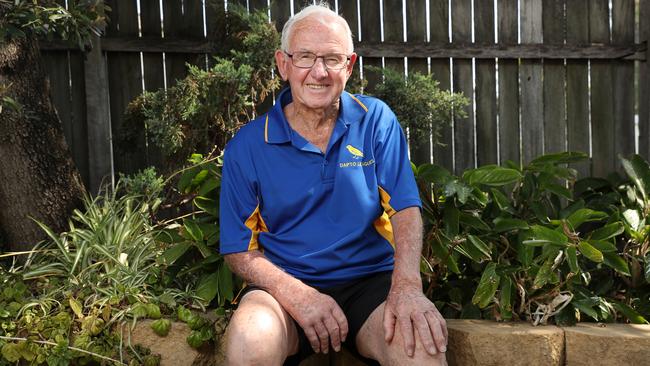Treasurer Josh Frydenberg called ageist over older Australian comments
Treasurer Josh Frydenberg has been branded “ageist” for portraying older people as a burden on the economy and calling on over-65s to retrain and keep on working to the “new demands” they were placing on the health, aged-care and pension systems.
NSW
Don't miss out on the headlines from NSW. Followed categories will be added to My News.
Treasurer Josh Frydenberg has been branded “ageist” for portraying older people as a burden on the economy.
Mr Frydenberg said over-65s needed to retrain and keep on working to curb the “new demands” they were placing on the health, aged-care and pension systems.
National Seniors Australia spokesman Ian Henschke said “older Australians were not a drain or burden on the community and it was wrong to suggest that”.
Instead the problem was ageist attitudes — including the Treasurer’s, Mr Henschke said.
“You know the way that Australians say ‘I’m not racist but’? Well people are also unintentionally ageist and I’m sorry but I’m calling it out here,” Mr Henschke said.
“Ageism is as unacceptable as racism and sexism.”

Australian Institute of Management workplace expert Gary Martin said older workers were often labelled slow, too serious, prone to injury and illness, resistant to change and technophobic.
“Yet not one negative stereotype about older workers stands up when placed under close scrutiny,” Professor Martin said.
“In fact, older workers are often more reliable, manage stress effectively, master new skills well, are highly engaged and are able to mentor younger team members.”
Age Discrimination Commissioner Kay Patterson said “damaging, dated and inaccurate” myths about older workers had to be busted.
“Older workers are a critical part of our workforce but there’s still work to be done to end age discrimination in the workplace,” she said.


Mr Frydenberg said while work participation among over-65s was at a record high, not enough people were upskilling as they aged.
“This will have to change if we want to continue to see more Australians stay engaged in work,” he said.
This would help to address the fall in the number of workers relative to age pensioners, he said.

But Mr Henschke countered that pension costs were falling as a proportion of the economy, down from 2.9 per cent of GDP about 20 years ago to 2.7 per cent today and on the way to 2.5 per cent by 2038 as more people self-funded their retirement.
Labor spokesman Jim Chalmers claimed there had been a 45 per cent rise in over-55s on the dole since the Coalition came to power. He said a review and report, due out soon, “should not be stalking horses for even more cuts to the pension and super”.

